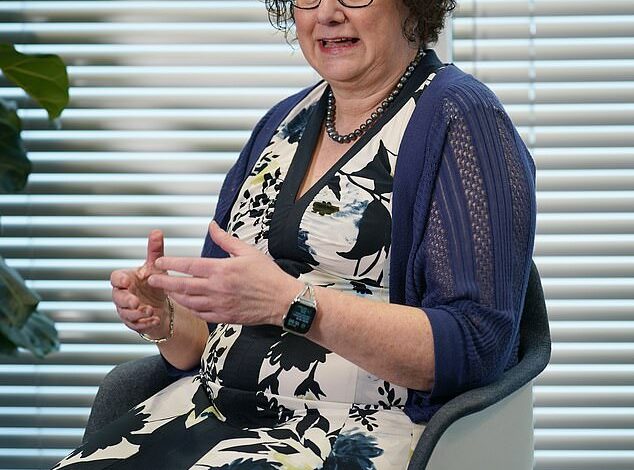NHS to open six new children’s gender clinics by 2026 – and announces tougher referral criteria




NHS chief executives today announced that six new gender identity clinics will open in England by 2026.
The regional centres will join two existing clinics in Liverpool and London, as part of a national review of gender services for children and young people.
Health officials said the centres would focus on a more “holistic” approach, including support for mental health and for children with conditions such as autism.
NHS managers are also set to tighten the criteria for referrals to specialist clinics, with patients required to see two doctors beforehand.
More than 5,700 young people under the age of 18 in England and Wales are currently waiting for treatment at two specialist gender hubs, which opened in April.

Dr Hilary Cass said the length of the waiting list to access gender services was having ‘significant implications’ for children and their families

Great Ormond Street Hospital in London is one of two centres to replace the scandal-hit Tavistock and Portman NHS Foundation Trust
The clinics, based at Great Ormond Street Hospital in London and Alder Hey Children’s Hospital in Liverpool, came after the scandal surrounding the Tavistock and Portman NHS Foundation Trust.
NHS England has committed to transforming its gender identity services following the publication of the ground-breaking Cass Review in April this year.
The research found that children receiving NHS transgender treatment were on a path to irreversible change, despite limited medical data.
The move also follows a ban on the routine prescribing of puberty blockers to children with gender dysphoria.
The health service said today that all new referrals to specialist gender services should be made through mental health or paediatric services to ensure each child or young person has received a thorough needs assessment.
The new services have no minimum age, ensuring parents of very young children can receive support through NHS services if needed.
In addition to services for children and young people, NHS England has also published plans for a review of services for adults.
Dr Hilary Cass said she was “pleased” that the NHS planned to “fully implement” her recommendations, but warned that the process ahead was likely to be “challenging”.
She added: ‘I am pleased that NHS England plans to fully implement the recommendations of my review and the next important step will be the biggest challenge: turning these into reality.
‘The vision of the evaluation – reflected in the implementation plan – is to increase the services available for young people with gender issues. These services take a holistic approach to care, taking into account the needs of each individual. They offer a full package of care that can be delivered as close to home as possible.
‘By creating a new partnership of regional providers, we will also engage leaders from professional associations, education and research to ensure that these services continue to develop in line with the evidence and best practice to support children and young people.’
Professor James Palmer, NHS Medical Director for Specialist Commissions, said: ‘The rollout of new specialist centres in every region of England will be vital to improving and expanding NHS gender services for children and young people, to ensure they receive evidence-based, responsive, holistic care – and the Cass Review provides the backbone on which our implementation plan is based.
‘It is clear that our services for adults also need focus. The waiting times for care are too long and the experiences with care are too variable.
‘In the evaluation we must pay attention to bad experiences, but also learn from good experiences with care.

Puberty blockers, which interrupt the physical changes of puberty such as breast development or facial hair, will now only be available to children as part of clinical research trials. Pictured: Tavistock and Portman NHS Foundation Trust, which has been accused of pushing children into puberty blockers by former patients who felt they were not being challenged enough.
‘It is vital that we hear the views of patients and staff. Some of them have raised concerns with Dr Cass. This review gives them another chance to be heard.
‘There is still much work to be done, but we are already making progress on a number of recommendations from Dr Cass. In addition, today we have published plans outlining how we will build services that provide the care patients and their families need to thrive.’
Previously, the Tavistock and Portman NHS Trust in London was the only NHS clinic offering gender-related services for children.
The approach, which relied heavily on medical intervention, using puberty blockers to delay the onset of puberty, was criticised, but there was insufficient evidence that the medication had a positive effect.
In January 2021, inspectors already assessed the service as inadequate.
Dr Cass’s research also found that GPs were ‘pressured into prescribing hormones’ by patients who had attended a private clinic.
The report, which ran to almost 400 pages, contained a stark warning about “the use of unregulated medicines and from providers who are not regulated in the UK”.
Dr Cass said GPs should resist attempts by private healthcare providers to prescribe puberty blockers or hormones, ‘particularly if that private healthcare provider is acting outside NHS guidelines’.




